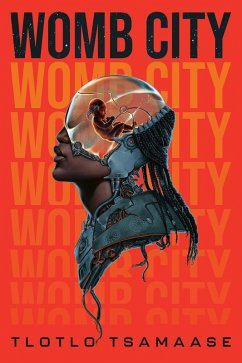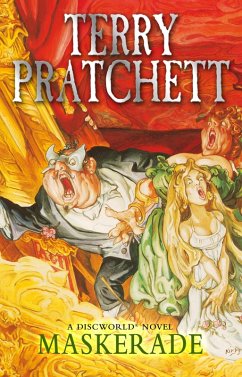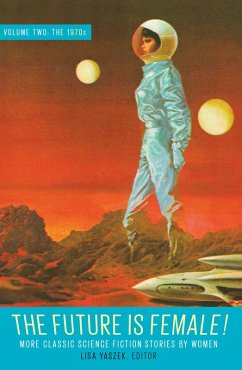
The Revolt of Man (eBook, ePUB)
Enriched edition. A Futuristic Examination of Gender Dynamics and Societal Norms in Victorian England
Kommentar: Benson, Tessa / Redaktion: Good Press

PAYBACK Punkte
0 °P sammeln!
In "The Revolt of Man," Walter Besant presents a provocative exploration of societal norms, gender dynamics, and the quest for autonomy in an imagined future. Set in a world dominated by a matriarchal society, this speculative fiction delves into themes of male disenfranchisement and the struggle for personal liberty. Besant's narrative employs a blend of vivid characterization and philosophical discourse, engaging readers in a dialogue about the implications of power structures. His deft use of satire and dystopian elements positions the novel within the literary context of the late 19th-cent...
In "The Revolt of Man," Walter Besant presents a provocative exploration of societal norms, gender dynamics, and the quest for autonomy in an imagined future. Set in a world dominated by a matriarchal society, this speculative fiction delves into themes of male disenfranchisement and the struggle for personal liberty. Besant's narrative employs a blend of vivid characterization and philosophical discourse, engaging readers in a dialogue about the implications of power structures. His deft use of satire and dystopian elements positions the novel within the literary context of the late 19th-century social reform movements, resonating with contemporary debates about gender and social justice. Walter Besant, a prominent Victorian author and social commentator, was deeply influenced by the socio-political currents of his time, including the early feminist movement and the fight for women's rights. His extensive background in history and his involvement in various reformist activities undoubtedly shaped his understanding of societal inequalities. Besant was known for his commitment to addressing contemporary issues through literature, which is evident in this work. This compelling novel is a must-read for anyone interested in the intersections of gender, power, and societal change. Besant's insightful critique encourages readers to reflect on their own societal structures, making "The Revolt of Man" both a timely read and a timeless discourse on human rights. In this enriched edition, we have carefully created added value for your reading experience: - A succinct Introduction situates the work's timeless appeal and themes. - The Synopsis outlines the central plot, highlighting key developments without spoiling critical twists. - A detailed Historical Context immerses you in the era's events and influences that shaped the writing. - A thorough Analysis dissects symbols, motifs, and character arcs to unearth underlying meanings. - Reflection questions prompt you to engage personally with the work's messages, connecting them to modern life. - Hand-picked Memorable Quotes shine a spotlight on moments of literary brilliance. - Interactive footnotes clarify unusual references, historical allusions, and archaic phrases for an effortless, more informed read.
Dieser Download kann aus rechtlichen Gründen nur mit Rechnungsadresse in A, B, BG, CY, CZ, D, DK, EW, E, FIN, F, GR, H, IRL, I, LT, L, LR, M, NL, PL, P, R, S, SLO, SK ausgeliefert werden.







![Dispossessed, The [50th Anniversary Edition] (eBook, ePUB) Cover Dispossessed, The [50th Anniversary Edition] (eBook, ePUB)](https://bilder.buecher.de/produkte/72/72258/72258936n.jpg)





